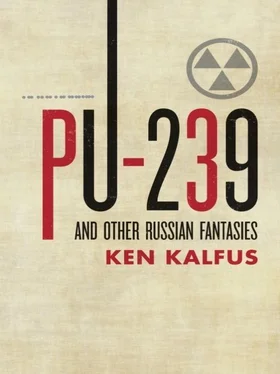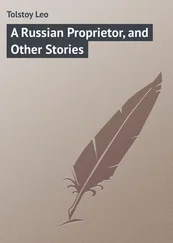Ken Kalfus - Pu-239 and Other Russian Fantasies
Здесь есть возможность читать онлайн «Ken Kalfus - Pu-239 and Other Russian Fantasies» весь текст электронной книги совершенно бесплатно (целиком полную версию без сокращений). В некоторых случаях можно слушать аудио, скачать через торрент в формате fb2 и присутствует краткое содержание. Город: Minneapolis, MN, Год выпуска: 2011, ISBN: 2011, Издательство: Milkweed Editions, Жанр: Современная проза, на английском языке. Описание произведения, (предисловие) а так же отзывы посетителей доступны на портале библиотеки ЛибКат.
- Название:Pu-239 and Other Russian Fantasies
- Автор:
- Издательство:Milkweed Editions
- Жанр:
- Год:2011
- Город:Minneapolis, MN
- ISBN:978-1-571-31082-8
- Рейтинг книги:5 / 5. Голосов: 1
-
Избранное:Добавить в избранное
- Отзывы:
-
Ваша оценка:
Pu-239 and Other Russian Fantasies: краткое содержание, описание и аннотация
Предлагаем к чтению аннотацию, описание, краткое содержание или предисловие (зависит от того, что написал сам автор книги «Pu-239 and Other Russian Fantasies»). Если вы не нашли необходимую информацию о книге — напишите в комментариях, мы постараемся отыскать её.
Together, these works of fiction capture the famously enigmatic Russian psyche. They display Kalfus’s ability to imagine a variety of believable yet wholly singular characters whose lives percolate against a backdrop of momentous events.
In his second book of short stories, Ken Kalfus takes on the speeding troika that is Russia in the 20th century. It’s an astonishing act of literary ventriloquism, displaying a range of subjects and techniques that would be remarkable in any writer, and is that much more so in one working in a tradition not his own. There are not one but many Russias in
: the giddy utopianism of the early Soviet Union; the postwar Stalinist personality cult; the brief thaw of ’60s liberalism; and, perhaps most affectingly, the post-Gorbachev state, in which infrastructure crumbles while workers go unpaid. The title story begins with an accident in a nuclear plant and ends in unwitting apocalypse, as a technician dying of radiation poisoning attempts to sell weapons-grade plutonium on the black market. The result is part tragedy, part
-style farce, featuring hoodlums so dumb they think they’re dealing in drugs: “‘What did he call it?’… ‘Plutonium. From Bolivia, he said.’” In “Anzhelika, 13,” a young girl is convinced she has caused Stalin’s death, while “Salt” is a satiric fairy tale about supply and demand. “Budyonnovsk” finds Viktor Chernomyrdin negotiating not with Chechen hostage-takers but with an exhausted, embattled Russian Everyman, Vasya, who is “old enough to know what a real job is, but not old enough to have ever had one.”
The short-story collection suits Kalfus; its eclecticism let him come at his subject from as many angles as he can dream up (and that’s a lot). It’s harder to sustain the same kind of imaginative momentum in a longer form, which makes the book’s final novella an unexpected success. “Peredelkino” follows two writers through an intricate dance of literature, politics, jealousy, and desire, and then closes on a lovely and moving image. The narrator—discredited, disillusioned, his career finished—stands outside his own house “in the dark nowhere place from where authors always watch their readers.” Inside is his wife, to whom he has been repeatedly and flagrantly unfaithful, oblivious to his presence but transfixed by his book:
In a sense, that’s us he’s looking at, absorbed in the book we’ve just finished. Kalfus is the kind of writer who can tip his hat to the reader—who can acknowledge our *complicity*—all without ever lifting us out of the world he’s created. Most fiction speaks to either the heart or the head; his does both with ease.
These five short stories and one novella demonstrate Kalfus’s sense of the absurd, and his marvelous knowledge of modern Russia. The jewel of this collection is its eponymous first story. Timofey, a nuclear engineer, absorbs a toxic amount of radiation in an accident at his workplace, an obsolete provincial nuclear weapons facility. Hoping to leave his family some money after his death, Timofey steals some plutonium and takes it to Moscow, planning to sell it on the black market. But Yeltsin-era Moscow perplexes him absolutely. He makes the mistake of trusting Shiv, a small-time hoodlum who knows no physics: the results are comic and awful at once. Other stories describe the long shadow of Stalinism. “Birobidzhan” is a fascinating version of the bizarre “homeland” for Jews that Stalin sanctioned and attempted to build within Russia. In “Anzhelika, 13,” a girl gets her first period on the day Stalin dies. Terrified, she equates the national mourning, her brutish father’s grief and her body’s function. The novella, “Peredelkhino,” begins with the narrator, Rem Petrovich Krilov, about to produce a servile review of a novel by Leonid Brezhnev. The narrative then flashes back to the ’60s, just before the Prague Spring, when Krilov is a rising star of Moscow’s official literary culture, with his own suburban dacha. After the defection of a beautiful writer whom he had innocently recommended to an editor, Krilov falls from grace; in the repressive post-1968 climate, he is tarred with her “crime.” Kalfus shows a striking talent for transcultural understanding, and for depicting the very strange; fans of Paul Bowles, or of Kalfus’s earlier collection, Thirst (to be released in paperback by Washington Square Press), won’t want to miss these new tales. Agent, Michael Carlisle. Author tour. (Sept.) FYI: First serial rights to one of the stories, “Salt,” have been sold to Bomb magazine.
Copyright 1999 Reed Business Information, Inc.
http://www.youtube.com/watch?v=iiMhvmtfZFs
Amazon.com From
> I knew that shortly there would be many explanations to be made, however imperfectly, and then confessions and recriminations, protestations of grief and loss, and then at last hard, practical calculation. Before that, I wanted to absorb, place in words that I would always be able to summon, an image of her like that, the passionate reader. — Mary Park












